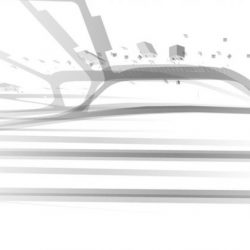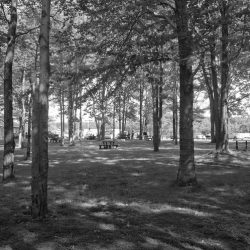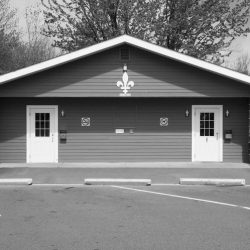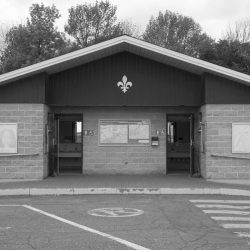This research by design project proposes an inventory of rest stops in the Quebec road network in order to explore, through the design project, their relationship to the territory, the government and the cultural imagination. It is based on seeing, in the rest stop, not only an offer of services to travellers, but also a biopolitical device deployed at the scale of the territory.
The rest stop involves provincial politics and bureaucracy, mechanisms for privatizing public goods, cultural and biological identity, gender issues, body management, public hygiene and illicit practices. Far beyond their potential as places that can enhance the territory and the local landscape, rest stops form a vast constellation of cultural interfaces that link the machinery of government with people on the move. They thus express the assumption of responsibility by the state or municipality for the biological functions of travelers, reinforce the socio-material arrangement of the territory while being a place of differentiation and, above all, actively participate in the control and regulation of these functions and this organization by territorializing them.
In Quebec, the development of road parks went hand in hand with the modernization of the state and the construction of the road network in the second half of the 20th century. The great majority of roadside rest areas were built in the 1960s and 1970s, and they retain an allusive architectural language in the vernacular and a link with the state (management). Although they are models of “non-places”, their architecture and the government responsibility give the park of Quebec rest stops a symbolic link to the cultural identity inscribed in the territory and the public assumption of responsibility for services to travellers. The project to modernize the rest stops in Quebec, managed by the Ministère des Transports du Québec (MTQ), has been developing slowly for nearly 30 years but has accelerated in the 2000s. The MTQ, which manages 102 of the province’s rest stops (213 are municipal), is in the process of producing surveys for their modernization and potential privatization. We are therefore at a key moment in the transformation of the road park network, a situation that calls for and justifies a look at the place these rest stops occupy in the collective imagination and their links with the territory. Incidentally, one of the main contributions of the project lies in the particular context of the lack of documentation of rest stops and the importance of making a survey (other than technical) in the wake of their modernization.
The project includes documentation in the field, exploration through photography and drawing in a first phase of investigation, data synthesis and experimentation leading eventually, in a second phase, to the realization of a book and an exhibition.
Thomas-Bernard Kenniff, Bechara Helal and Virginie Lasalle
research funded by l’Université du Québec à Montréal





